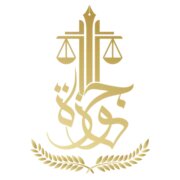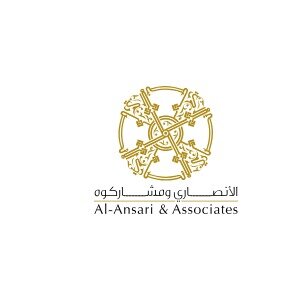Best Renewable & Alternative Energy Lawyers in Qatar
Share your needs with us, get contacted by law firms.
Free. Takes 2 min.
Or refine your search by selecting a city:
List of the best lawyers in Qatar
About Renewable & Alternative Energy Law in Qatar
Renewable and alternative energy law in Qatar is an evolving area designed to support the nation's vision for sustainable development. Qatar, historically reliant on its natural gas resources, has recognized the importance of diversifying its energy mix. The government is actively promoting renewable sources such as solar and wind energy to align with its National Vision 2030, aiming for energy security, environmental stewardship, and economic growth. Legal frameworks are constantly adapting to encourage private investment, regulate the deployment of new technologies, and protect the environment, making this an exciting and dynamic field for investors, developers, and communities alike.
Why You May Need a Lawyer
Legal assistance in the renewable and alternative energy sector in Qatar is crucial for several reasons. Entrepreneurs and companies often need guidance when navigating complex licensing procedures, regulatory compliance, and contract negotiations. Project developers may face land acquisition, environmental impact assessment, and permitting challenges. Investors require due diligence to verify regulatory risks and incentives. Individuals and businesses entering into power purchase agreements or joint ventures may need legal protections and advice on dispute resolution. Additionally, understanding import regulations for renewable energy equipment or complying with grid connection requirements frequently calls for expert legal input.
Local Laws Overview
Qatar has enacted several laws and regulations impacting renewable and alternative energy projects. The legal landscape is shaped mainly by the Ministry of Energy and the Qatar General Electricity and Water Corporation (Kahramaa). Key regulatory focuses include:
- Licensing and permits for renewable energy producers
- Grid connection standards and requirements
- Land use and zoning for project siting
- Environmental protection laws, including mandatory environmental impact assessments
- Foreign investment laws impacting project ownership and operation
- Contracts and Power Purchase Agreements with state or private entities
- Importation and certification standards for renewable technology and components
- Financial incentives and support for renewable energy projects
As the market expands, regulations are expected to develop further, underscoring the importance of staying informed.
Frequently Asked Questions
What types of renewable energy projects are allowed in Qatar?
Qatar primarily focuses on solar and, to a lesser extent, wind energy projects. Other technologies may be considered subject to regulatory approval and national priorities.
Are there any incentives for investing in renewable energy?
Yes, Qatar offers some incentives such as long-term contracts or land grants for large-scale projects, but policies may change over time. Consulting a legal advisor can help clarify eligibility and procedures.
Who regulates the renewable energy sector in Qatar?
The Ministry of Energy, Kahramaa, and the Ministry of Municipality and Environment oversee regulation and implementation, with various other bodies involved depending on the project scope.
What permits are necessary to start a renewable energy project?
Permits may include site approval, environmental impact assessments, construction permits, grid connection authorization, and operation licenses.
Can non-Qataris invest in renewable energy projects?
Foreign investment is permitted, but subject to certain restrictions and regulatory approvals. Legal assistance is often needed to navigate ownership and partnership rules.
How are land rights handled for renewable energy sites?
Land use is tightly regulated and often involves negotiating leases with governmental authorities or private entities. Legal advice is crucial to ensure clear and secure tenure.
Is net metering allowed for solar energy systems?
Net metering policies are under consideration. Currently, small-scale producers need to consult local authorities for updated positions regarding feeding surplus energy back to the grid.
What environmental regulations apply to renewable energy projects?
All projects must comply with Qatar’s environmental protection laws, including thorough impact assessments and mitigation measures as required by the Ministry of Environment.
What steps are involved in grid connection?
Developers must apply through Kahramaa and comply with technical and safety standards. Legal advice can help address delays or disagreements during this process.
How can disputes related to energy projects be resolved?
Disputes may be resolved through negotiation, arbitration, or litigation. Many contracts specify dispute resolution mechanisms, underscoring the need for careful legal drafting from the outset.
Additional Resources
The following resources and organizations are valuable for those seeking legal or technical information on renewable and alternative energy in Qatar:
- Ministry of Energy Affairs
- Qatar General Electricity and Water Corporation (Kahramaa)
- Ministry of Municipality and Environment
- Qatar Science and Technology Park
- Qatar National Vision 2030 documentation
- Local chambers of commerce and renewable energy associations
Next Steps
If you are considering a renewable or alternative energy project in Qatar, your first step should be to consult with a lawyer experienced in this field. Prepare documentation on your intended project, business structure, and any preliminary agreements. A legal expert will help you understand regulatory requirements, identify potential risks, assist with necessary permits, and draft contracts tailored to your needs. Stay updated by following announcements from relevant ministries and remain proactive about compliance as the legal landscape continues to evolve. Early legal guidance can help ensure the success and sustainability of your energy ventures in Qatar.
Lawzana helps you find the best lawyers and law firms in Qatar through a curated and pre-screened list of qualified legal professionals. Our platform offers rankings and detailed profiles of attorneys and law firms, allowing you to compare based on practice areas, including Renewable & Alternative Energy, experience, and client feedback.
Each profile includes a description of the firm's areas of practice, client reviews, team members and partners, year of establishment, spoken languages, office locations, contact information, social media presence, and any published articles or resources. Most firms on our platform speak English and are experienced in both local and international legal matters.
Get a quote from top-rated law firms in Qatar — quickly, securely, and without unnecessary hassle.
Disclaimer:
The information provided on this page is for general informational purposes only and does not constitute legal advice. While we strive to ensure the accuracy and relevance of the content, legal information may change over time, and interpretations of the law can vary. You should always consult with a qualified legal professional for advice specific to your situation.
We disclaim all liability for actions taken or not taken based on the content of this page. If you believe any information is incorrect or outdated, please contact us, and we will review and update it where appropriate.
Browse renewable & alternative energy law firms by city in Qatar
Refine your search by selecting a city.

















